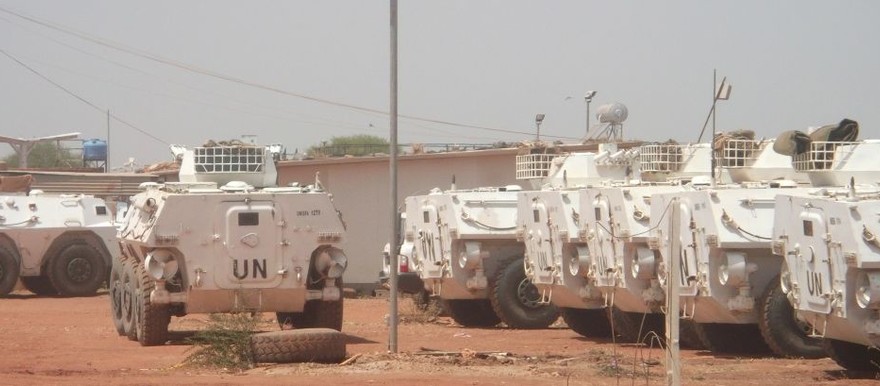‘UN peacekeepers struggle to play meaningful role’ amid rising Abyei tensions

Extremely high tensions between the Dinka Ngok and Misseriya tribes combined with an impasse in the political negotiations over the disputed Abyei area have increased the possibility of clashes in the border area, an international thinktank warned yesterday.
The Swiss-based independent research project Small Arms Survey Sudan in its latest report concluded that tensions in the area are now at their highest point since the Sudan Armed Forces (SAF) invasion of the territory in May 2011. At the same time, the UN peacekeeping mission in Abyei, UNISFA, is struggling to play a meaningful role, it says.
An almost “total breakdown in community relations between the rivaling parties, one backed by South Sudan and other by Sudan” has followed the killing of the Dinka Ngok paramount chief last year.
The UN has reportedly observed approximately 600 SPLA members in Abyei, including 300 at Maker Abior and 70 in Dungop, both important sites within the area of Missiriya migration area.
Both Missiriya pastoralists and members of the Ngok Dinka community are responsible for launching attacks, with many skirmishes in late February and early March in northern Abyei, with casualty estimates varying widely.
UNISFA strategy
“The Missiriya now move under UNISFA protection and largely without Ngok Dinka consent,” explains the report.
This has contributed to a growing atmosphere of discontent among the Ngok Dinka toward UNISFA, the researchers conclude, further stating that clashes that have occurred in the territory since December 2013 have cast doubt on UNISFA’s ability to uphold its mandate effectively.
The Small Arms Survey writes that the UNISFA’s strategy is to funnel migrating Missiriya herders into the eastern and western migratory corridors, while forming a buffer zone in the areas near Abyei town that contain the greatest concentration of Ngok Dinka returnees.
According to Dinka leaders, this approach effectively relocates Ngok Dinka from the north of Abyei and thus aids Missiriya and Government of Sudan attempts to obtain the north of the territory for exclusive Missiriya use.
Other factors
Acute water shortages in Abyei and West Kordofan, along with Southern instability, are intensifying prevailing animosities in the territory. It is now the height of the Missiriya migration – when the northern pastoralist are farthest south in the territory.
As of February 2014, there were an estimated 55,000 Missiriya moving southward through Abyei, with approximately 700,000 livestock.
Complicating matters is the flow of people who are fleeing violence in South Sudan and heading into Abyei. Some 600 families reportedly arrived from Unity state in January 2014.
The governments of Sudan and South Sudan agreed in Addis Ababa in 2011 to demilitarize the Abyei border territory. In spite of the agreement, Sudan has maintained a force of oil police at Diffra, Abyei’s sole oil complex.
File photo: Armoured personnel carriers of the UN Interim Security Force in Abyei (Radio Tamazuj)